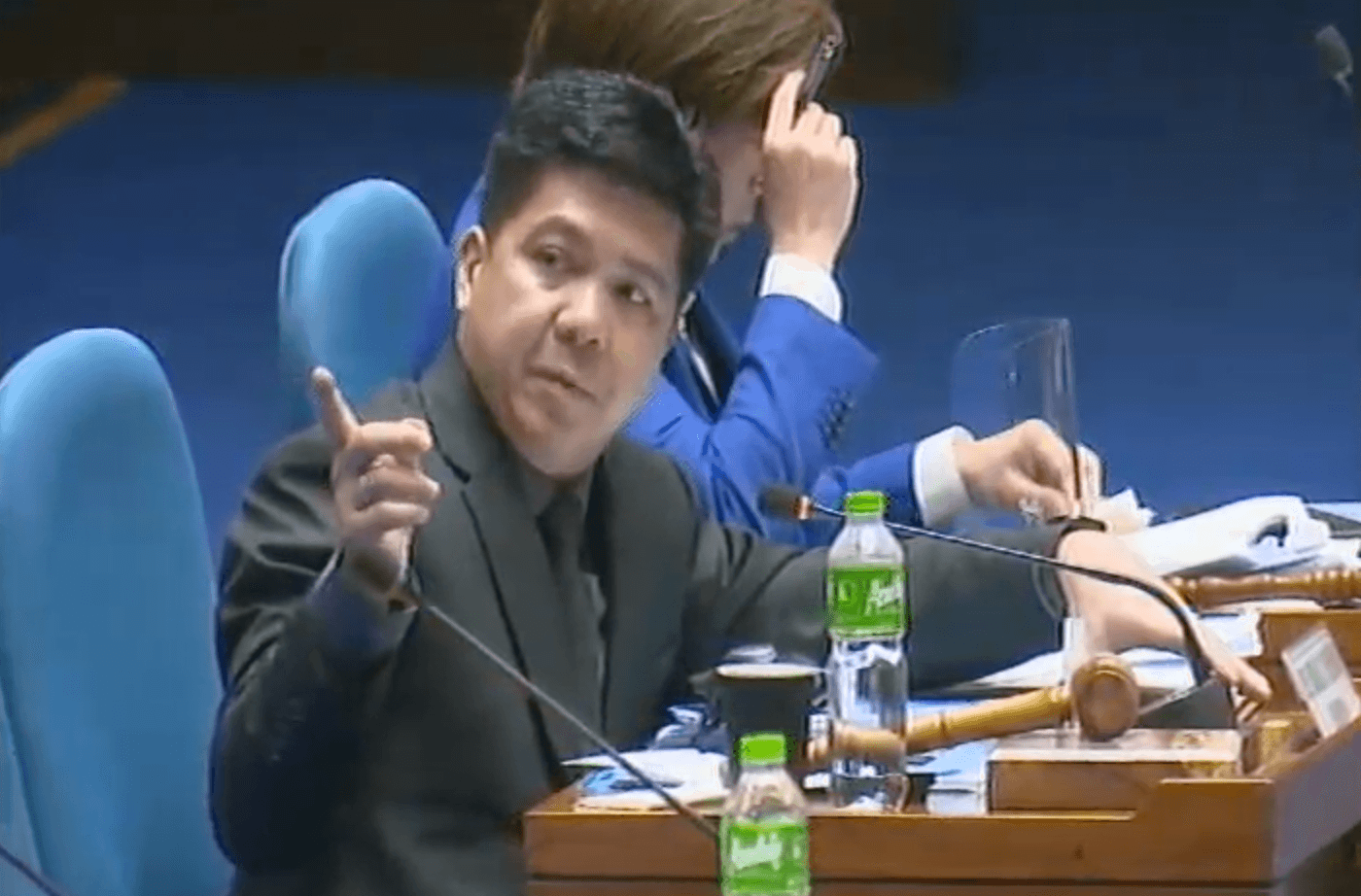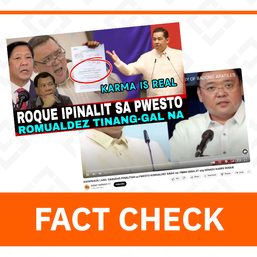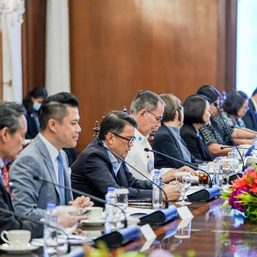SUMMARY
This is AI generated summarization, which may have errors. For context, always refer to the full article.


The Philippine Health Insurance Corporation (PhilHealth) allegedly released P1.49 billion worth of Interim Reimbursement Mechanism (IRM) funds to 51 health care facilities despite pending fraud cases, a lawmaker said on Monday, August 17.
Citing data provided to him by PhilHealth, House committee on public accounts chair Mike Defensor questioned during the resumption of their PhilHealth investigation on Monday, August 17, why the state health insurer distributed P1.49 billion of IRM funds to medical facilities that are still facing fraud allegations.
Most of the health care institutions (HCIs) involved are major hospitals in Metro Manila, the epicenter of the coronavirus pandemic in the Philippines.
They 51 HCIs are as follows:
“Ang ipinagtataka ko: Bakit hindi ni-resolve ang fraud cases bago nag-release ng IRM? Kasi po sa mata ng publiko, sa mata namin, kung ganito po na may fraud cases ang mga ospital at institusyon ay bibigyan pa rin ng pondo ng PhilHealth, nakakatakot po ‘tong batayan,” Defensor said.
(This is what puzzles me: Why not resolve the fraud cases first before releasing the IRM? Because in the eyes of the public, in the eyes of us lawmakers, this kind of basis is worrisome if hospitals and institutions with fraud causes are still receiving funds from PhilHealth.)
“Nakakatakot po ‘tong ehemplo (This kind of example is scary). And with so many hospitals here in Metro Manila, in other countries, we should not allow those that have fraud cases, those that have penalties to continue to have such funds,” added the Anakalusugan congressman.
PhilHealth has so far reported a total of 4,664 fraud cases between 2013 to the present day.
These cases include padding of claims, claims for non-admitted or non-treated patients, extending the period of confinement, post-dating of claims, misrepresentation by furnishing false or incorrect information, unjustified admission beyond accredited bed capacity, unauthorized operations beyond service capability, and fabrication of documents.
The IRM – which has emerged as an alleged source of politics and corruption in the state health insurer – is a program that advances the reimbursement of members’ insurance claims to hospitals and clinics directly hit by “fortuitous events,” supposedly cutting the long queue and tedious bureaucratic process.
IRM shares were computed based on hospitals’ historical claim or the average daily claim from the previous year multiplied by 90, which should approximate the amount the medical facilities would need for 3 months.
PhilHealth officials present during the hearing have not yet given a direct explanation as to why HCIs with pending fraud cases are given IRM funds.
The joint investigation of the House committees on public accounts, as well as good government and public accountability was later suspended past 1 pm to give way to an executive session with PhilHealth senior vice president Rodolfo del Rosario Jr.
The closed-door meeting is ongoing as of posting time.
Red flags
Among the 51 HCIs cited by Defensor are several dialysis centers and lying-in clinics that do not necessarily accept COVID-19 patients. Senators have earlier raised red flags over these advanced payments.
Bagong Henerasyon Representative Bernadette Herrera echoed senators’ sentiments and said this set-up is problematic as it goes against the entire purpose of the IRM.
“Kaya natin minadali ‘yong IRM to help the hospitals cope with the COVID situation. Kung ‘yong mga dialysis centers ay naniningil sila at tumatanggi sa COVID patients para i-dialysis, parang hindi nakatulong yung IRM sa mga ospital in this time of pandemic,” Dy said.
(We hastened the distribution of the IRM to help hospitals cope with the COVID-19 situation. But if the dialysis centers ask for these funds yet refuse COVID-19 patients who are in need of dialysis, it seems the IRM doesn’t really help hospitals in this time of pandemic.)
PhilHealth SVP for health finance policy sector Israel Francis Pargas then said that the IRM’s goal is to provide immediate funds to HCIs, whose entire system will be affected by COVID-19.
This is regardless if there are positive cases admitted in the facility or not.
“’Yon pong pagbibigay no’ng IRM is not only for COVID cases but for all cases that are affected with this pandemic… Ang pinanggagalingan namin dito ay ’yon pong COVID, ’yon pong kabuaan ng isang operasyon ng ospital ay maapektuhan ng COVID cases,” said PhilHealth SVP for health finance policy sector Israel Francis Pargas.
(The distribution of the IRM is not only for COVID-19 cases but for all cases that are affected by this pandemic… We are coming from the fact that COVID-19 cases will affect the entire operation of the hospitals.)
But pressed further by Dy, PhilHealth executive vice president and COO Arnel de Jesus said they are willing to revoke or revise programs.
“Kami po ay nakikinig nang taimtim sa mga suggestions at kami po ay naniniwala sa wisdom ng collective body ng ating mga lehislador. At kami po ay handang mag-revoke, mag-revise, at mag-suspindi ng kung anumang programa para po sa ikabubuti ng mga programa na gustong ipatupad ninyo para sa mga kababayan natin at PhilHealth,” De Jesus said.
(We are intently listening to the suggestions and we believe in the wisdom of the collective body of our legislators. We are ready to revoke, revise, or suspend any programs for the improvement of our programs to benefit our countrymen and PhilHealth.)
PhilHealth has already suspended the IRM following the corruption allegations being unearthed in the ongoing twin investigations by the House and the Senate.
A total of 14 PhilHealth officials have already signed bank secrecy waivers allowing the Anti-Money Laundering Council to look into their bank transactions as the state health insurer continues to face corruption controversies. – Rappler.com
Add a comment
How does this make you feel?



![[OPINION] The First Mode conundrum](https://www.rappler.com/tachyon/2024/03/tl-first-mode-conundrum-03232024.jpg?resize=257%2C257&crop=283px%2C0px%2C720px%2C720px)

There are no comments yet. Add your comment to start the conversation.